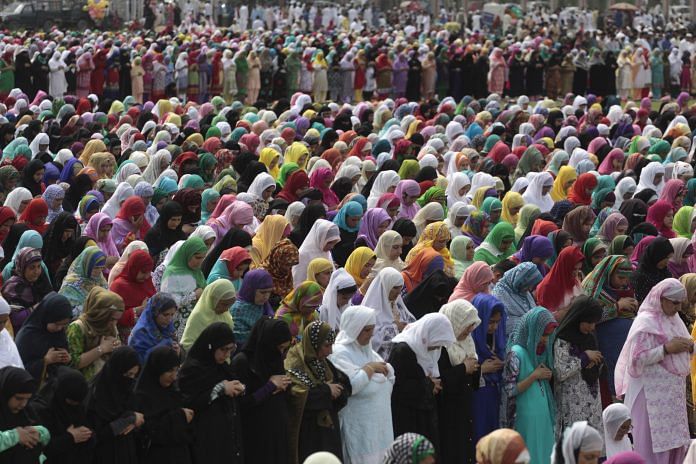Contrary to reports that the bill could be introduced in winter session of Parliament, govt sends draft to states for comments and suggestions.
New Delhi: It seems the Narendra Modi government may not criminalise triple talaq instantly. While it has been reported that the bill could be introduced in the winter session of Parliament, there has been a rethink, with the government deciding to send the draft to states for comments and suggestions.
The draft bill seeks to imprison a Muslim husband for three years and also fine him for resorting to instant triple talaq, which was deemed an unconstitutional practice by the Supreme Court earlier this year.
“The draft has been sent to all the state heads, and their recommendations and comments have been sought on the draft. Once that is done, further steps will be taken to table the Bill,” a Home ministry official told ThePrint.
Sources said that state heads had been given three months to make their suggestions and give consent. Once all the suggestions are received, a member of the clergy will be taken on board for consultation on Muslim Personal Law, to carefully make the final draft.
Surprising drop in urgency
Having moved swiftly to criminalise the practice, the government’s drop in urgency comes as a sudden, surprising development.
Sources said while the Centre could’ve made the law through an enabling legislation that could later be enforced by the states, a need was felt to take consent from all states on the bill, since they’ll be the ones putting it into practice.
“The decision to take all states in the loop was taken after considerable debate, on the basis of the feedback that once triple talaq is criminalised, they will have to enforce it,” the official said.
However, given the fact that BJP or its allies’ governments are in power in most states, sources say it should not be a difficult, time-consuming exercise.
A 35-year-old woman had challenged the practice of triple talaq in 2016, a year after her husband of 15 years divorced her. The matter was heard by the Supreme Court, and on 22 August, the practice of triple talaq was declared unconstitutional.
Parallels to Shah Bano
A similar situation had arisen in 1984 under Rajiv Gandhi’s Congress government, when Shah Bano, a Muslim woman, moved the Supreme Court demanding maintenance from her husband under Section 123 of the Code of Criminal Procedure, 1973.
After detailed arguments, the Supreme Court decided in 1985 that she should be given maintenance. The decision was, however, challenged, as it went against Muslim Personal Law, which states that the maintenance period can only be made liable for the iddat period (three months) after the divorce.
The Supreme Court judgment became unfavourable for the Rajiv Gandhi government, as Muslim clerics had opposed the decision. Following protests, the government nullified the SC verdict by passing the Muslim Women (Protection on Divorce Act), 1986, which conformed with Muslim Personal Law without any consultation with the states.



